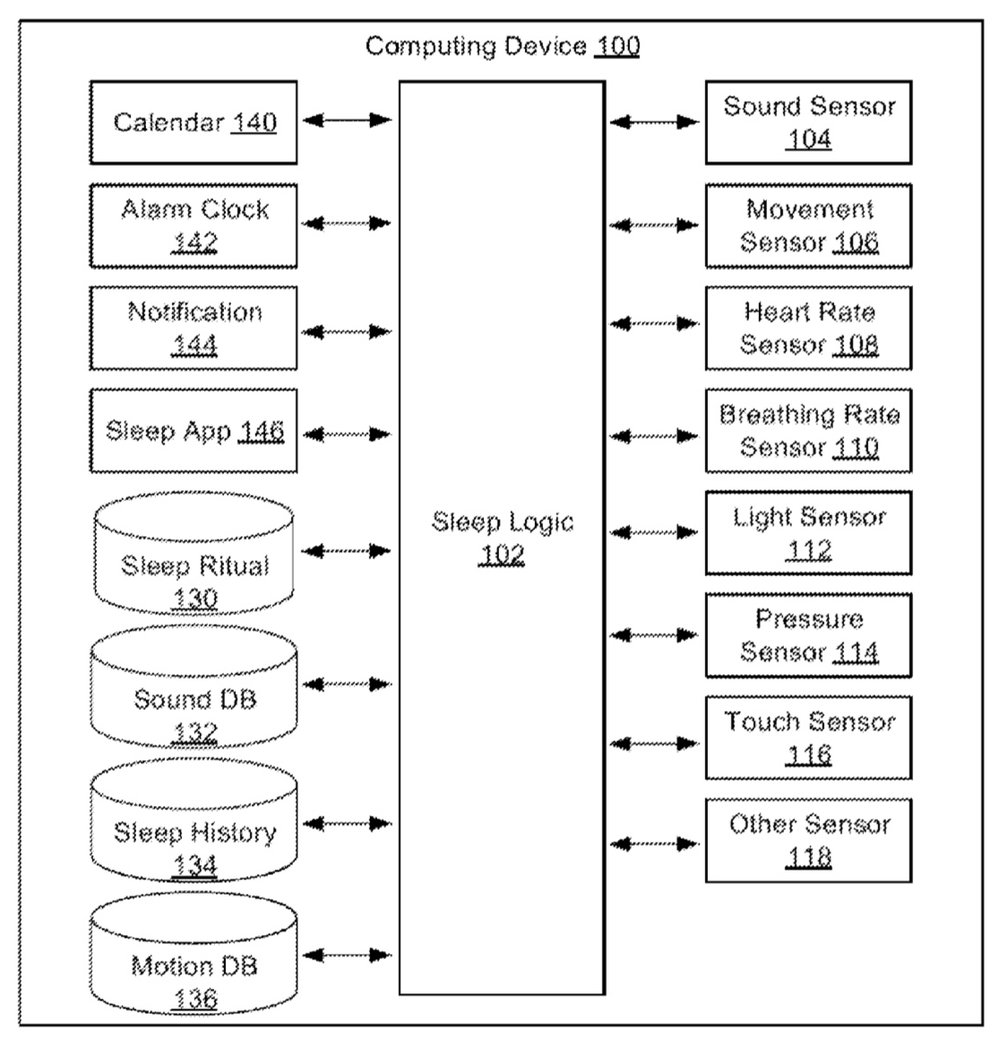Future iOS and watchOS devices may alter your wake-up alarm depending on your sleep pattern. Apple has filed for a patent (number 9,692,874) for “adjusting alarms based on sleep onset latency.”
In the patent filing, Apple notes that most people require a certain amount of sleep at night to feel well rested the following day. Often, when a person works, the person will set an alarm to wake them up at an appropriate time so that they can arrive at work on time. To get sufficient sleep, the person will go to bed at a time that allows for an appropriate amount of sleep (seven hours, eight hours, etc.). However, most people don’t fall asleep right away when they go to bed. So, even if the person goes to bed at an appropriate time to provide eight hours of sleep, the person often only ends up with six or seven hours of sleep when the alarm goes off in the morning.

According to Apple’s patent filing, a mobile device can adjust an alarm setting based on the sleep onset latency duration detected for a user of the mobile device. For example, sleep onset latency can be the amount of time it takes for the user to fall asleep after the user attempts to go to sleep (e.g., goes to bed). The mobile device can determine when the user intends or attempts to go to sleep based on detected sleep ritual activities.
Sleep ritual activities can include those activities a user performs in preparation for sleep. The mobile device can determine when the user is asleep based on detected sleep signals (e.g., biometric data, sounds, etc.). In some implementations, the mobile device can determine recurring patterns of long or short sleep onset latency and present suggestions that might help the user sleep better or feel more rested.
Apple says that particular implementations provide at least the following advantages: the mobile device can help the user feel more rested by automatically adjusting an alarm or suggesting an earlier bedtime based on the determined sleep onset latency to ensure that the user gets enough sleep; the mobile device can automatically determine sleep onset latency using various sensors of the mobile device; the mobile device can automatically identify sleep patterns that may be adversely affecting the user.
Naturally, there’s one obvious question to this: what if you HAVE to be awake and up at a certain time? Being well rested is good; being late to work or school isn’t.
Of course, Apple files for — and is granted — lots of patents by the U.S. Patent & Trademark Office. Many are for inventions that never see the light of day. However, you never can tell which ones will materialize in a real product.
